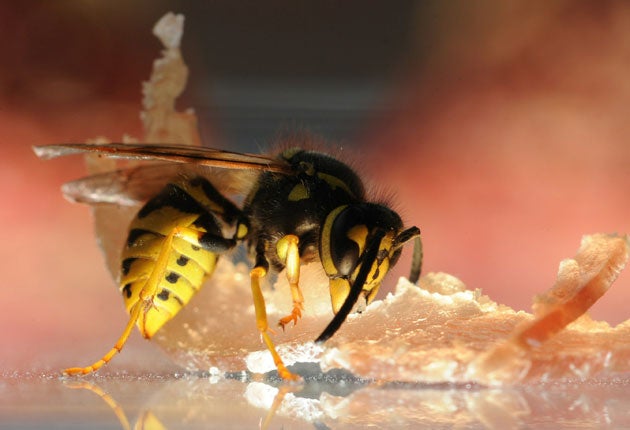Plagues of roaches, rats, and bedbugs sweep Britain
Pest infestations are on the rise as cash-strapped councils phase out free extermination services

They spread disease, feast on our blood and destroy our clothes. And their numbers are soaring. Britain's populations of rats, mice, cockroaches, bedbugs, wasps and moths are growing, in some cases unchecked, as more local authorities charge for extermination – or simply stop offering the service altogether.
In 2002, 99 per cent of Britain's 402 councils provided pest control, according to a survey by the Chartered Institute of Environmental Health (CIEH). By last year one in 10 had stopped, with more expected to follow. Of the rest, almost a third now charge for the service, resulting in fewer call-outs from residents.
Private pest control services are thriving. Lodi, which makes rat and mouse traps and poison for home use, says sales of rodenticides are up 25 per cent on last year. And Beaver Pest Control, a private company working in London and the Home Counties, has reported a 44 per cent increase in call-outs for mice and rats over the last three years. The National Pest Technicians Association (NPTA) says there are similar increases across the UK.
Bedbugs are also on the rise. Since 1992 infestations have risen by 38 per cent, partly thanks to the "upcycling" of second-hand furniture. In the first half of the year Rentokil reported 24 per cent more call-outs than in the same period last year, linking the rise to an increase in foreign holidays.
Call-outs for wasps' nests this summer were up by 231 per cent on last year, according to Rentokil. The sharp rise was attributed to the warm summer and to council cut-backs.
Killgerm, which makes and distributes professional pest control products, says it has sold 18.5 per cent more insecticides in the first nine months of this year, largely for bedbugs and cockroaches, than in the same period last year. The firm also says it had 59 per cent more call-outs for moths in 2009 than in 2008.
John Davison, chief executive of the NPTA, warned that council cut-backs could become a serious problem. "If you look at New York, it ceased its pest control for five years and things got so bad it cost millions to get the problem sorted again," he said.
The CIEH is urging a review of council pest management services. Tim Everett, executive director of professional services at the institute, said: "Action against our most significant pests is declining when irresponsibly discarded litter, international travel and climate change are increasing our risk of exposure to pests and pest-related diseases."
Join our commenting forum
Join thought-provoking conversations, follow other Independent readers and see their replies
Comments
Bookmark popover
Removed from bookmarks